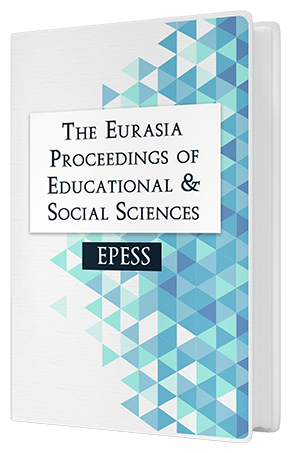Examination of Mothers' Opinions Regarding Children's Digital Playing
DOI:
https://doi.org/10.55549/epess.1051114Keywords:
Child, Digital Game, Mother.Abstract
The first periods of human life are defined as critical periods by educators. The child's recognizing and making sense of the outside world usually starts in this period and the child harmonizes this process through play. Especially in childhood education and development, play is an indispensable part of life for children. While technological developments make life easier in many areas, they sometimes make people addicted. Therefore, with the widespread use of digital games, a computer addiction occurs in society. The aim of this study is to reveal the views of mothers about children playing digital games. The research is a qualitative study. The research group consists of 30 mothers and this study group was determined by the maximum variation sampling method. In the study, face-to-face interview technique was used on a voluntary basis with 10 mothers who have children under 6 years old. In the research, using the interview method, which is one of the qualitative research methods, the data obtained were analyzed by the content analysis method. As a result of the research, mothers see play as a means of entertainment, socialization and education in terms of children's development. In addition, the research group stated that they could not spare time for children due to intense daily working conditions and children tended to digital games. They stated that when digital games are mentioned, they think of computer, telephone and technological games. As a result, mothers stated that digital games affect the development of children negatively and create addiction in children. In addition, it has been concluded that mothers, digital games create a lack of communication in children, keep them away from social life and slow down their social development.Downloads
Published
Issue
Section
License
Copyright (c) 2021 The Eurasia Proceedings of Educational and Social Sciences

This work is licensed under a Creative Commons Attribution-NonCommercial-ShareAlike 4.0 International License.
The articles may be used for research, teaching, and private study purposes. Any substantial or systematic reproduction, redistribution, reselling, loan, sub-licensing, systematic supply, or distribution in any form to anyone is expressly forbidden. Authors alone are responsible for the contents of their articles. The journal owns the copyright of the articles. The publisher shall not be liable for any loss, actions, claims, proceedings, demand, or costs or damages whatsoever or howsoever caused arising directly or indirectly in connection with or arising out of the use of the research material. All authors are requested to disclose any actual or potential conflict of interest including any financial, personal or other relationships with other people or organizations regarding the submitted work.




